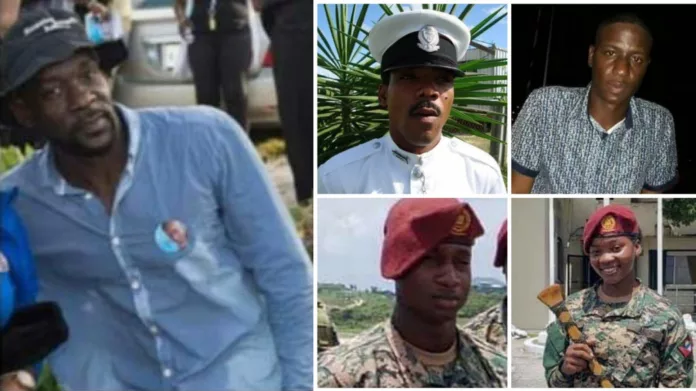
By Latrishka Thomas
The outcry of residents in relation to the ruling in the Bruce Greenaway murder trial appears to have been heard.
The Office of the Director of Public Prosecutions (DPP) moved swiftly yesterday to file an application to appeal the decision made by a judge to throw out the high profile case.
On Wednesday, Justice Colin Williams upheld ‘no case’ submissions made by four defence lawyers representing the four law enforcement officials who were accused of killing the Falmouth father-of-two.
Greenaway’s body was found at Indian Creek on April 13 2020, but he was reportedly last seen in the presence of police officer Jason Modeste and Defence Force soldiers Shakiel Thomas, Armal Warner and Aliyah Martin four days earlier.
After almost three months on trial, the defendants’ lawyers applied to have the case quashed on the basis that there was not sufficient evidence to convict the quartet.
Warner was represented by Sherfield Bowen, while Andrew O’Kola represented Thomas, Wendel Robinson represented Modeste, and Lawrence Daniels was Martin’s lawyer.
They put forward convincing arguments to suggest that the prosecution’s case was weak, lacked a “scintilla” of evidence and failed to satisfy the burden of proof that should be met for such a charge.
Thereafter, the lead prosecutor and former DPP of St Kitts, Valston Graham, strongly rebutted.
Justice Colin Williams agreed with the defence that the jury could not properly convict the four on the evidence presented.
He therefore asked the jury to return a not guilty verdict which they did, allowing the defendants to walk free.
But the Crown has now formally submitted an application to appeal the decision on the grounds that the judge “erred in upholding the submissions that the respondents had no case to answer by incorrectly applying the law to the evidence led in the prosecution’s case” and that he “erred in holding that there is no evidence from which the jury could find that the evidence led by the prosecution showed that the respondents committed the offence of murder as part of a joint enterprise”.
If the appeal is successful, the four could be put on trial again.
